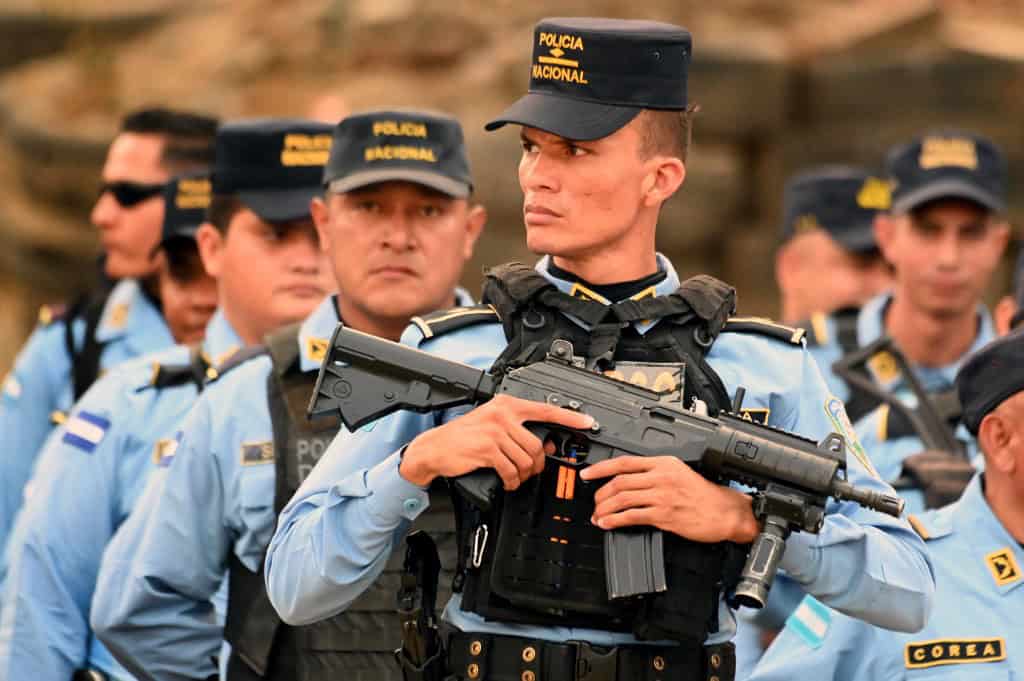Honduras announced on Friday night the construction of a mega-prison for 20,000 inmates, among more than a dozen measures, by declaring a “security emergency” to combat the overwhelming crime. In a national radio and television broadcast, President Xiomara Castro and other members of the National Defense and Security Council (CNDS) unveiled the “crime solution plan” in response to public outcry over the surge in violence.
“Given this declared security emergency, the immediate construction of an Emergency Detention Center (CRE) with a capacity for 20,000 inmates in the unpopulated area between the departments of Olancho and Gracias a Dios (east) is ordered,” announced the head of the military, Roosevelt Hernández.
He added that inmates currently confined in the national penitentiary system will be “immediately” transferred to the CRE. Around 30 prisons house approximately 21,000 inmates in the Central American country.
The construction of the prison and other measures in the plan resemble those undertaken by the President of El Salvador, Nayib Bukele, through which he has managed to control the “cancer” of gangs.
Upon assuming his second term on June 1, Bukele received President Castro and previously other Honduran government officials, apparently to present his successful security plans that could be replicated in Honduras.
Defense Minister Manuel Zelaya also announced that bidding for a prison, previously announced for 2,000 inmates, in the paradisiacal Swan Islands in the Caribbean, must begin no later than two weeks.
The military and police “must immediately plan and carry out urgent interventions in all municipalities identified with the highest incidence of hitmen, drug trafficking, extortion, kidnapping, arms trafficking, illicit association, and money laundering,” the president announced.
Security Minister Gustavo Sánchez explained that the actions aim to “establish control and restore order to physical spaces taken over by criminal structures in neighborhoods and communities with the highest crime rates.”
Additionally, there will be an “intensification of investigation and operations to locate, eradicate, secure, and destroy coca leaf, marijuana plantations, and drug processing centers,” he added.
For decades, Honduras, like other Central American countries, has been considered a transit point for cocaine from producing countries in South America to the U.S. market, but since 2017, Honduran authorities have detected vast coca plantations and laboratories for processing cocaine.






